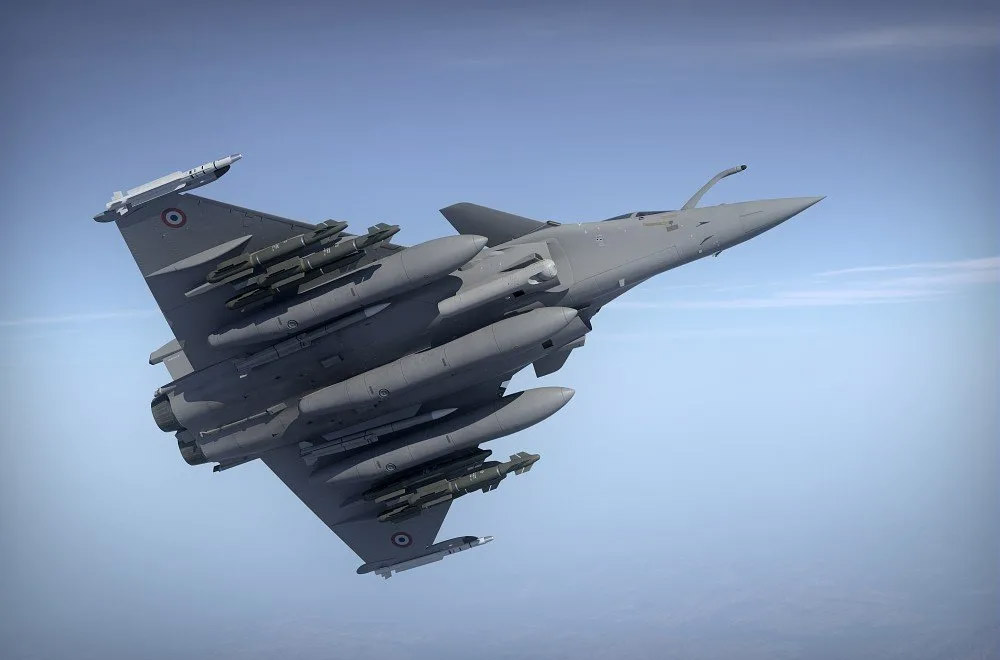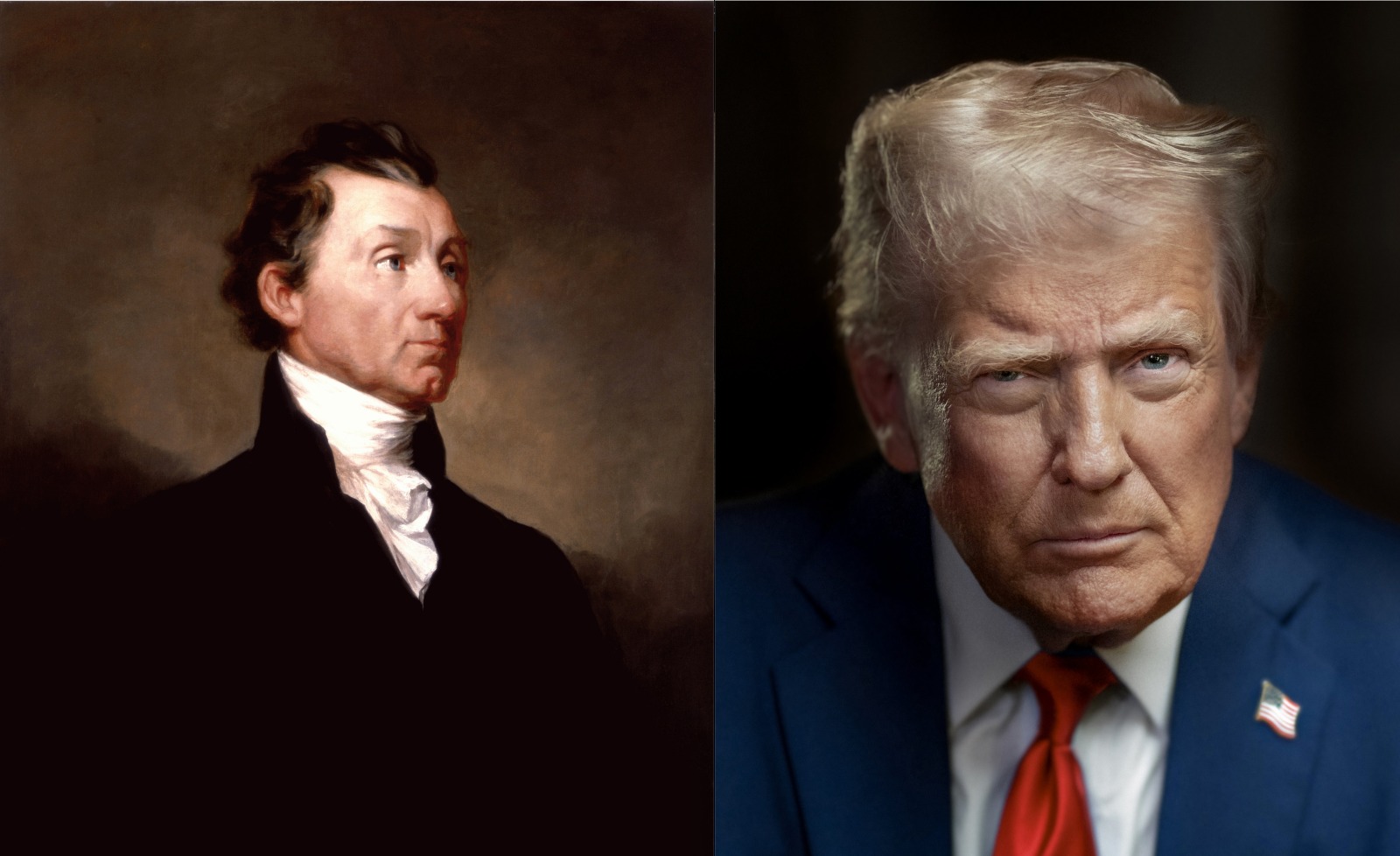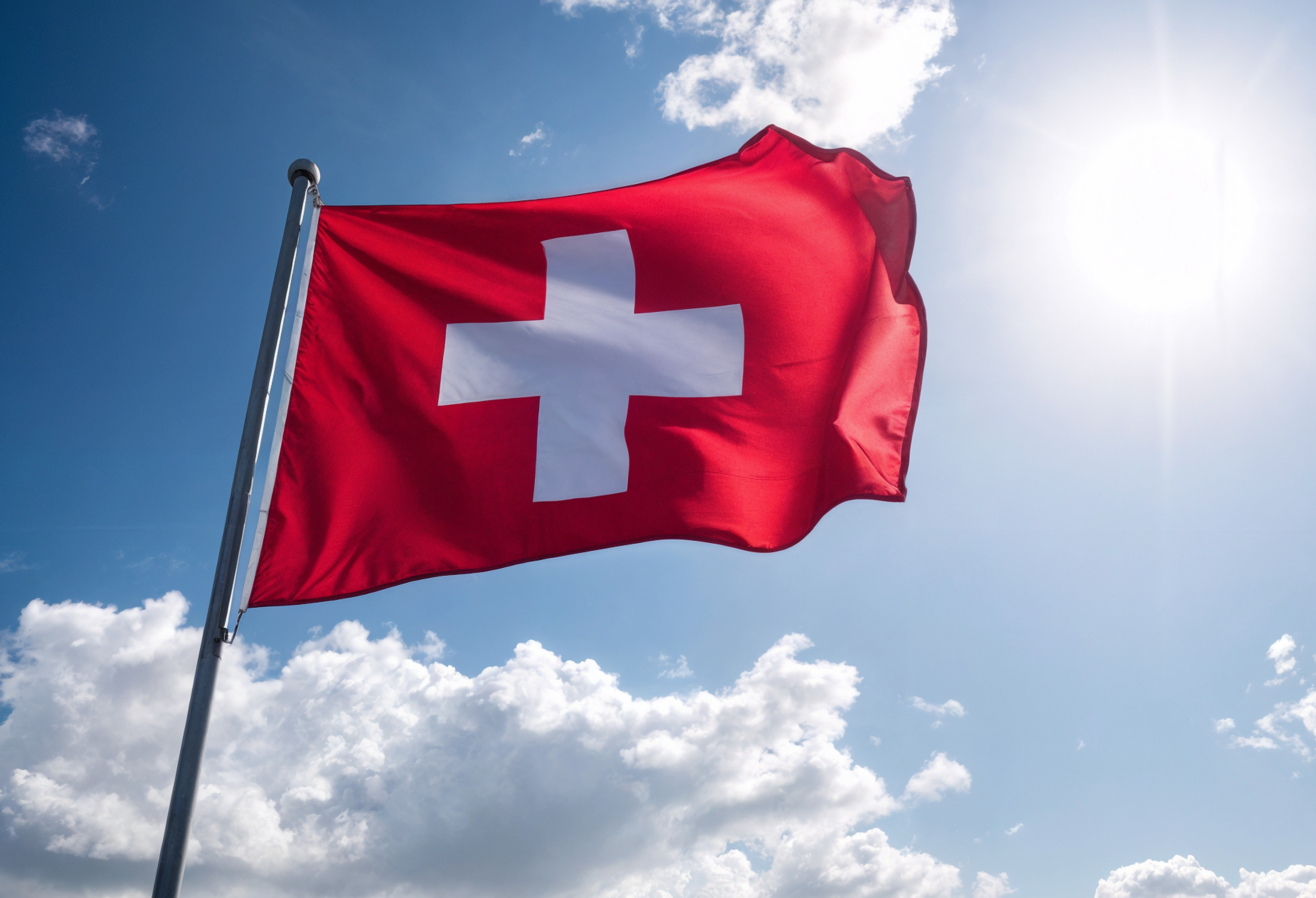No need for a lengthy discourse to describe the reactions aroused in the German political arena by the statements of principle concerning French nuclear doctrine outlined by Jacques Chirac on l’Île Longue on 19 January 2006.(1) The threat expressed by the President to make use, if necessary, of nuclear strikes targeted against rogue states and terrorists, has been widely condemned by German public opinion. On the German left wing, this announcement provoked agitation that was as intense as it was brief. The lowering of the nuclear threshold, openly and insistently envisaged by President Chirac, could hardly have been expected to elicit positive reactions from large segments of the German Social Democratic Party, or from the Greens, (never mind the Linkspartei), opposed from the start, for ethical reasons, to the possession of nuclear weapons. Their reaction was predictable, but other parliamentarians–liberals and a not insignificant number of conservatives–also voiced their serious reservations.(2)
The statement went down very badly, because it gave the impression, among others, that the Head of State was giving rein to a pointless escalation, and playing with fire in the context of the negotiations over Iranian nuclear policy still being conducted at the time by London, Paris and Berlin with Tehran. In the light of French advocacy of the political and military weight of its nuclear arsenal, Iran could be justifiably encouraged to produce its own nuclear weapons in order to ensure its own security, so went the argument. French provocation and a possible negaive Iranian reaction would unfailingly weaken the effects achieved in the reinforcement of non-proliferation, to which Germany is strongly attached.
In view of the virulence of the reaction, the German government worked hard to calm things down. Above all it sought to avert the threat of a full-scale debate on German nuclear policy at the beginning of its mandate. Officially it stressed that Jacques Chirac’s speech was in keeping with traditional French policy, and that nothing had changed, which led it to express surprise at the intensity of the reaction. However, virtually in the same breath it was compelled to admit that an adaptation of French nuclear deterrence to meet new threats would be understandable.
None the less, the German Chancellor must have regarded the situation as delicate, since the French President was invited—with an eye towards German public opinion—to clarify his proposals during the 25th Blaesheim meeting which took place a few days later at Versailles, by giving assurances that France did not consider its nuclear arsenal as weapons of combat but of non-use. The Chancellor would certainly have been satisfied by such a declaration before returning to Germany, but she could not prevent Jacques Chirac from adding his hopes that after the Greens had left the Government, the Germans would show themselves more inclined to rethink nuclear strategy.(3) Overall the German government must certainly be relieved that this additional comment has not, as yet, met with any reaction in Germany. It has not been forced–this time at least–into taking a position on one of the most sensitive areas of German politics; a debate on this topic would undoubtedly have been enough to bring down the ruling coalition.
The unmentionable topic: German nuclear security
Regardless of the diversity of opinion on the form, content and context of the French President’s statements, the reactions of the German government highlight a sensitive issue which holds the promise of some difficult debates to come for the Germans. Sooner or later Germany will have to adopt a position, not just to define its vital interests but, far more important, to state what it is prepared to undertake in the defence of those interests. The nuclear question cannot be dodged indefinitely: even if Germany does not wish to and will not possess nuclear weapons, its main partners in the EU and NATO do have them. All military strategies based on nuclear weapons are therefore of close concern to Germany, as is the erosion of non-proliferation in Asia as well as in the Middle East.
It is therefore natural that the publication of the German Defence White Paper, scheduled for this summer, is awaited with great interest. At best this document should usher in a debate in depth, going beyond the merely political arena, which might on the one hand shed some light, objectively and without prejudice, on the threats and risks, and on the other hand define the strategies and the means required for an effective response. Until now, the German political class has always avoided such a debate, because of the unease deeply felt by the German people where military matters are concerned. This is why it has postponed the opportunity to make major structural decisions about its defence policy, thereby contributing to the stagnation of ESDP.
From the experience of two World Wars it is an article of faith in Germany that no war should ever originate on German soil. German rearmament, and the question of stationing nuclear weapons on German territory, provoked the most virulent debates in the history of the Federal Republic. Gerhard Schröder himself successfully staked his career on this unanimous rejection of the use of force, and won re-election as Chancellor in 2002 thanks largely to his condemnation of the Iraq war, although he was initially slated to lose. His ‘no’ to the war was unconditional, unlike that of France.(4) Germany would not, in any circumstances, have participated.
The German attitude towards nuclear energy is scarcely less equivocal. Its use in Germany was of limited duration, as a result of years of protest by the anti-nuclear movement, which profoundly modified the German political landscape by bringing in its wake the creation of a fourth element in the political spectrum, the Greens. The beginning of the exodus from nuclear energy was enshrined politically by the Red-Green coalition.
During the preceding forty years the FRG had sheltered militarily under the American nuclear umbrella, in a sense collectively forgetting the very thing on which its security rested. However, this nuclear strategy was never beyond dispute, as was shown by the demonstration against the NATO twin-track decision, the largest ever to take place on German soil. If Germany never displayed the same type of amnesia when it came to French nuclear weapons, this is linked to the fact that the Germans were never authorised to participate in French nuclear planning, whereas they did have a role, as members of the NATO nuclear planning group, concerning the American and British arsenals. Moreover, the only targets planned for [France’s] Pluton missiles were on German soil, a bone of contention in Franco-German relations that has still not been fully digested.
Germany’s post-Second World War renunciation of nuclear weapons had not come easy, however. During the negotiations on the nuclear weapons Non-Proliferation Treaty at the end of the 1960s, the federal government was opposed to this for a long time, in spite of the pressure exerted by the United States, and by its own extra-parliamentary opposition. It was afraid of being divorced from technological development and of being put at a disadvantage, economically, regarding the civilian use of nuclear energy. Today, after reiterating its renunciation of nuclear weapons in the Two-plus-Four Treaty of German unification, the question of nuclear armament no longer has any place, even if it is raised from time to time in the political arena by individual politicians.(5)
Since 1990 Germany has undergone a remarkable evolution in the defence sphere. It is involved in military operations outside NATO, and contributes not only to peacekeeping missions but also to peace enforcement operations. None the less, agreement on this, both in society and among the different political parties, remains fragile. Today, as yesterday, it is not taken for granted by a German society, very largely ‘post-heroic’, that German interests should also be defended in the Hindu Kush, nor that it should be deemed necessary to provide for military measures, and to implement them as a last resort, for example in Kosovo to avert a threat of genocide.(6) Recent discussion of the deployment of the Bundeswehr to the Democratic Republic of Congo has shown this once again. Continual and radical cuts in the national defence budget are another indication of the lack of interest in military matters shown by society and the political establishment. For all these reasons, the transformation of the Bundeswehr from an Army that is still oriented almost exclusively towards national defence into a field force capable of intervening anywhere in the world is dragging on.
European responsibility
This difficult and unresolved relationship between Germans and military issues–leaving aside the nuclear question–is also an obstacle to Germany’s involvement in the EU. Germany can only assume its responsibilities in the development of ESDP if it stops merely paying lip-service to adopted positions. On the contrary, the numerous relevant German political initiatives launched in the past, in partnership with France and other countries–for example the establishment of an EU command structure–must be supported and sustained by Germany, with adequate and appropriate means, and with coherent strategic planning.
The European unification process has at this stage led to such a level of interdependence that it would seem illusory to seek to exclude nuclear armament from this sphere, notwithstanding that employment decisions would remain a matter of national sovereignty. If it came to the use of nuclear weapons, a state of dependence already exists: if France or Britain felt obliged to use them to defend their vital interests, the interests of all other member states of the Union would be directly concerned, at least in the case of the riposte to a French nuclear strike. It is therefore legitimate to ask how a European defence and security identity, to which the Germans also subscribe, can emerge without taking into consideration the nuclear armament of the two European nuclear powers, France and Britain, in the definition of security strategy.
One simple solution would be the abandonment of the nuclear option by the French and the British. Given the context of the increasing spread of nuclear technology, and the proliferation of missiles and other delivery means, this is a political illusion that would not necessarily win over a majority of Germans. In any case we can dismiss this hypothesis out of hand, because of the dependence which such a measure would place the French, British, and with them the Europeans as a whole, upon the Americans, bearing in mind that the predisposition of the latter to put their own security at risk to defend Europe, if needed, is more uncertain than in the past.
Merely maintaining the status quo would, none the less seem equally implausible. Jacques Chirac’s declarations on French strategy should, on the contrary be read in the light of the debate on American nuclear strategy. This is moving away from an exclusively political perception towards a military strategy, in which the increasing miniaturisation of nuclear warheads and the ever-growing precision of command technology make a pre-emptive recourse to tactical nuclear weapons more possible, and hence, to some extent more probable. The scenarios developed with a view to ‘decapitating’ Iranian nuclear installations reveal to what point this tendency has progressed.
The future of deterrence
This poses the question of whether the concept of nuclear deterrence, which in a bipolar world did at least have the virtue of ensuring the security and stability of the two blocs, still has a raison d’être. It is a matter for great regret that this question has not been debated for a long time, not only in Germany but throughout Europe.(7) It appears to have been completely sidelined in favour of crisis prevention and conflict management. Not that these aspects have no legitimacy–certainly in view of the many internal conflicts to which a growing number of states, where government is weak, are exposed–but they too cannot dispense with military resources, in spite of the emphasis rightly placed on the civilian dimension. There can therefore be no question of renouncing the threat of the use of force to prevent a violent conflict from exploding or to force it to a conclusion: as is shown by the setting-up of battle groups or by the establishment of the Civil-Military Planning Cell at the heart of the EU Council.
Thus the basic premise of deterrence would not appear to be outdated. It is still a matter of influencing the behaviour of the other side to cause it to renounce aggression for fear of sustaining unacceptable damage. That is the essence of deterrence strategy, or to adopt Glenn Snyder’s phrase,(8) the ‘negative aspect of political power’. This capability to influence the other in the direction he takes remains a determinant political feature of international relations, and equally plays a role in the emergence of the EU as an international player, whether in the negative sense (deterrence) or the positive (peacekeeping).
To attain that sort of deterrent capability a variety of tools, not only military but also diplomatic and economic, are available. The goal remains the same, however: to prevent or at least to limit the use of force in international relations, which, today embraces equally the use of violence within a state, particularly in civil wars. The ‘responsibility to protect’ decreed recently by the UN opens the way to deterrence in internal affairs, and threatens despots with sanctions. The deterrence will be that much more effective in that it is based clearly and unequivocally on international rules, and it will enjoy worldwide support.
Within this framework, nuclear weapons still have a politico-strategic mission. Of course it is no longer a question of preventing global war, by imposing on the Soviet leadership a cautious, prudent approach through nuclear deterrence. The status quo is challenged by many leaders and hostile players: but it would be wrong to assume that these players are acting totally irrationally, and that they are, as a result, ‘undeterrable’—insensitive to deterrent tactics, including nuclear. Even Iran’s leaders calculate the costs and benefits of their actions. It is merely more difficult to estimate the point at which they situate their threshold of the intolerable.
At the same time, it would seem to be incomparably harder to increase the cost of their actions to aggressors to the point where they feel obliged to renounce them. NATO experienced this during the air war against Yugoslavia: Milosevic yielded much later than expected, in contrast to the war in Bosnia. Even the al-Qaeda terrorist network cannot be denied a certain rationale in the pursuit of its objectives, even if Westerners are unable to decipher it. This is not contradicted by the suicide bombers who, in the name of al-Qaeda, put their own lives at stake: they are merely the instruments of a calculated offensive strategy.
French ambitions
In this context, President Chirac’s speech appears plausible. In view of current threats linked to the proliferation of weapons of mass destruction, or of the danger that rogue states or terrorists might acquire them, no country possessing nuclear weapons can envisage excluding the nuclear option to defend its vital interests or those of its allies. Did the Head of State seek to restore to nuclear armament the structural and stabilising strength which it possessed in the bipolar era? Should we be grateful to him for compelling Europeans to analyse the real dangers and to develop an ambitious strategy?(9) To achieve this, two sides are always needed, one to send signals, and the other to be prepared to read them. If the Île Longue speech was supposed to give impetus to a new debate on the Europeanisation of nuclear weapons, he seems to have missed the goal: his partners, including the German political establishment, have not picked up the ball and run with it. Doubts concerning the sincerity of Jacques Chirac’s European ambitions will probably remove a large part of the force of that impetus. As long as the French appetite for power continues to be perceived behind the veneer of its European engagement, France is unlikely to find much support, and in the new Union constellation of 27 may even risk wearing out the Franco-German special relationship.
For its part, Germany should also be asking itself how much longer it is going to continue to avoid taking necessary decisions. Security policy is the last great integration project to be achieved in Europe. It has no future unless Britain and France stop putting spokes in the wheels in order to impose their own leadership, and unless Germany loses the horror vacui it experiences every time it has to face questions of political and military power. For Germany, the nuclear question remains one of the most difficult. A fundamental debate on this topic could perhaps make its commitment to the conventional field of CFSP and ESDP even more delicate. Germany would undoubtedly find it easier to take part in such a debate within a European framework. To achieve this it would have to react to the repeated proposals from France, which should itself treat these proposals more seriously than in the past.
Having said that, one can hardly reproach France for feeling a certain disappointment in its relations with Germany. The signals sent by the latter are nothing less than ambivalent. At the time of the adoption of the Franco-German defence and security concept in 1996, the German government declared to France that it was ready to begin a dialogue on ‘the future role of nuclear weapons in the context of European defence policy’. Germany has certainly not contradicted this declaration since, but has done precious little in that direction.
It is highly improbable that the German government was not aware of the evolution of French nuclear doctrine, since the two countries have placed ‘all the means at their disposal’ in common for their mutual protection.(10) Jacques Chirac stated in his 2001 speech that the mission of France’s nuclear strike force (force de frappe) is equally to oppose ‘threats emanating from regional powers which might have weapons of mass destruction at their disposal and might put our vital interests in jeopardy’. Taking this into account, the surprise or even indignation displayed by certain German politicians after the statement of 19 January 2006 border on hypocrisy.
The new circumstances, and the options which stem from the new world situation, increasingly throw into relief a fundamental dissonance in Franco-German relations. It lies in the fact that French leaders are too power-conscious, whilst their German counterparts largely ignore the factor of power in the strategic domain. Simultaneously the political role which both of them enjoyed previously in the EU has now diminished, a fact which owes as much to the new stars in the firmament of 25 as to the stress laid too emphatically on Franco-German demands by the Schröder-Chirac tandem. In the interests of their own roles, and the opportunities that will open up to Europe in tomorrow’s world, both countries have a major interest in addressing this issue–subtly, and tactfully incorporating the European dimension.(11)
(1) Défense nationale et sécurité collective, February 2006.
(2) I would like to thank Stefanie Weiss and Klaus Brummer of the Bertelsmann Stiftung for their aid and research. See also S. Weiss, ‘Ne sous-estimons pas la doctrine Chirac (Don’t underestimate the Chirac doctrine)’, Le Monde, 3 February 2006.
(3) Frankfurter Allgemeine Zeitung, 25 January 2006, p. 6.
(4) Alfred Grosser, ‘Chirac hat niemals nein gesagt zum Krieg (Chirac never said “no” to the war)’, Die Welt, 23 January 2006.
(5) See Former Minister for Defence Rupert Scholz in the tabloid Bild, 26 January 2006. See also Gero von Randow, Zeit online, 26 January 2006.
(6) In a worldwide representative poll conducted for the Bertelsmann Foundation in January 2006, only 7 % of Germans declared that, for them, military power counted amongst the essential attributes of a twenty-first century world power. Compare with other countries: Brazil 11 %, China 36 %, the United States 33 %, France 28 %, Britain 24 %, Japan 16 % and Russia 29 %. The poll was carried out by tns emnid, Bielefeld.
(7) At the latest since the adoption of NATO’s new Strategic Concept in 1999, when Germany was unable to impose its initiative for a strategy of no-first-use.
(8) Glenn H Snyder, ‘Deterrence and Power’, The Journal of Conflict Resolution, vol. 4, no. 2, June 1960, pp. 163 ff.
(9) Michael Stürmer, Berliner Morgenpost, 20 January 2006.
(10) Joint Declaration of 22-23 January 2003 (15th anniversary of the Franco-German Security Council).
(11) See Josef Janning, ‘Leadership, coalitions and change: the role of states in the European Union’, International Affairs, 4/2005, pp. 821-33.







